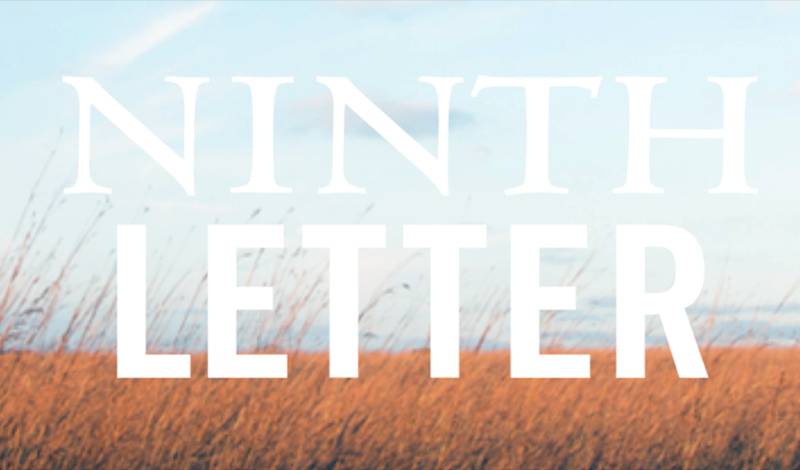First things first. I’ve been thinking about all of you and hoping you are okay. Or as okay as we can be under the circumstances. As you may have noticed, Smile Politely has pivoted our coverage to meet the challenges of these times, while still hoping to provide news, stories, and opportunities for engagement. This refocusing will be especially true here in the arts section, as we usually operate with the goal of bringing people together for a shared, hopefully transformational, arts experience. The challenge now is to continue to find ways to engage you with local arts and artists, albeit virtually (I think I prefer this term to the somewhat off-putting and contradictory term remote engagement). I hope you will join us for this journey. I hope it brings you some relief, maybe even some joy. At the very least, it will be a chance to participate in the redefining of what a local arts scene looks like in the midst of a pandemic. For those of you who are creators, performers, makers and artists of all stripes, I invite you to reach out and let us know what you’ve been struggling with, how you’ve been pivoting your work and your sales, and how art, either in creating or consuming, has helped heal the fear and the isolation. Thank you. And now, on to our regularly scheduled programming.
In BC times (Before COVID-19), I had planned on reviewing Ninth Letter’s most recent print edition. However, in light of the situation, I thought it might be best to explore their online edition. It is free. And it’s available immediately. It will give you something challenging to read besides the news. And, if you haven’t already done so, it will offer a chance to explore Ninth Letter’s extensive archives.
In case you may be wondering, there are differences between the print and web editions. The web edition draws contents from open submission calls, and typically focuses its work around a singular theme. And as you might imagine, it is largely text-oriented, compared to the illustrated and always creatively laid out print version.
And strangely, it seems quite right that the theme of this issue is borderlessness. It is almost eerie to read editor Michael Hurley’s introduction now.
Borders, put simply, are the lines between things—and lately, the lines between things seem to be working awfully hard to convince us of their necessity. What would happen without us? they insist. Chaos, they threaten. Chaos, they mouth again for effect. We hoped with this issue to interrogate those lines, to imagine them differently, and to ultimately erase them. We hoped to call their bluff. Maybe we wanted a little chaos.
One might assume that the borders he and his team were of both form and subject. Responding to increasing calls for physical borders between countries. Borders of class and race and gender, as werll as borders of genre, style, and form.

Image: Illustrated text of the word “borderlessness” in all caps and various shades of blue, repeated thrice in intersecting lines. Image from Ninth Letter website
There is almost a feeling life imitating art reading this work at a time when we remain socially distanced yet intimately connected by technology and by our shared sense of fear . Hurley observes that this experiment yielding surprising results.
In some places, the lines didn’t just disappear—they sort of…melted. In others, like telephone wire, they left little ridges where they were buried. Others sort of blurred with edges illumined in glowy static, to borrow from Aimee Seu. Still others bled like watercolors into something new and prettier, more vapor or wisp than line in their new state.
And just as these brave writers and editors explored, experimented, and discovered with subject and form, so must we as we read, and we find ways to rewrite our own stories after such a devastating plot twist.
The edition features creative nonfiction, fiction, poetry, and an experimental category named “borderless.”
Among my favorites is the poem “Meeting with a Ghost Friend at Starbucks” by Threa Almontaser. Perhaps it struck such a deep cord as we are now living with the ghosts of our lives BC, as well as a much more intimate awareness of our own mortality.
She orders passion-tea lemonade, sweetened, her way
of weaning off coffee. Because ghosts already have a hard time
falling asleep. I have a hard time
speaking. It’s like there’s always two wet
fingers in the muscle of my throat.
When she drinks, I watch the juice
travel down her see-through body. It puddles
at her transparent feet. I’m heavier
next to ghosts, feeling all the cuts
of meat I’m made up of, all the myths
and metaphors.
Among the “borderless” works, I especially enjoyed Daniel Garcia’s “A Night to Remember,” which is part mad-libs, part-Choose-Your-Own-Adventure, and part-guided therapy. It begins as follows:
Follow the steps to complete the blanks. After, put everything in past tense.
1. Choose an act someone wouldn’t believe happened to you.
2. Choose an act people laugh at.
3. Choose an act only women experience.
4. Choose an act prevalent on college campuses.
5. Choose an act that inspires a deeply cutting sense of shame.
Kelsey Rexroat’s short work of fiction “Human Tide,” is compact, dense with meaning, and a startling look at how easily tragedy can seep into the best laid plans.
So go ahead and indulge in some beautifully written catharsis reading. Maybe text a friend and set up a Google Hangout for a virtual discussion. There’s so much to talk about. The important thing is to stay connected.
Visit the Ninth Letter website
Dive right into the Winter 2020 web edition








